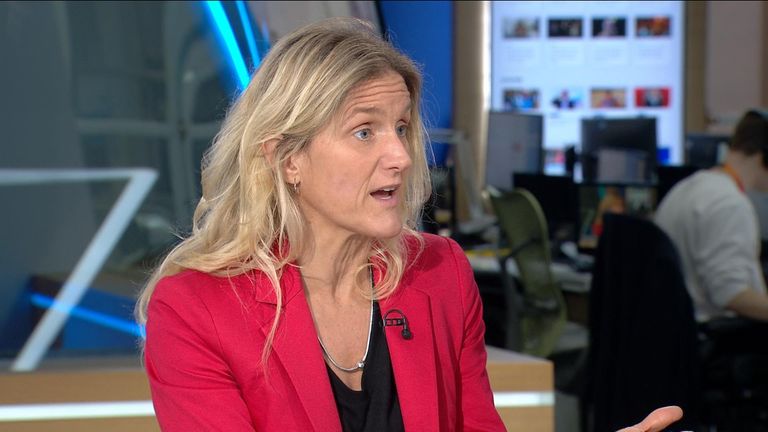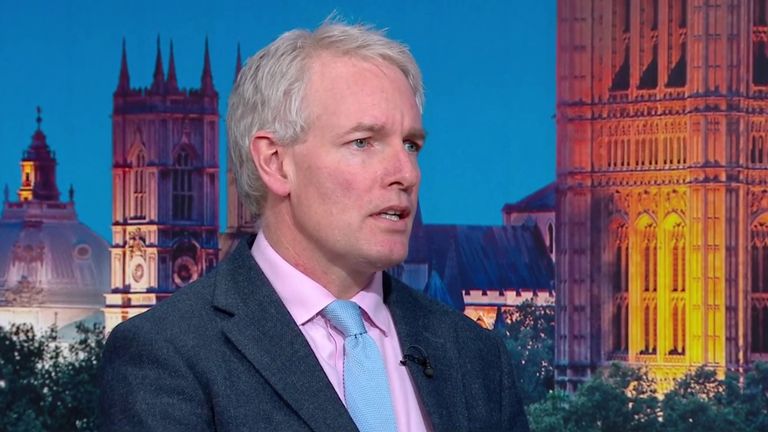Health Secretary Wes Streeting has ordered his department to carry out a review of the costs of potentially changing the law to legalise assisted dying.
Mr Streeting, who intends to vote against a landmark bill on the issue, has warned that a new assisted dying law could come at the expense of other NHS services if it is implemented.
It comes as MPs weigh up whether to vote for a change in the law when given the opportunity to do so later this month.
The Terminally Ill Adults (End of Life) Bill, put forward by Labour MP Kim Leadbeater, would give terminally ill people with six months to live the choice to end their lives.
There has been much debate about the bill since its details were published on Monday evening, including that the medicine that will end a patient’s life will need to be self-administered and that people must be terminally ill and expected to die within six months.
Politics latest: Farage mocked over ‘rare’ PMQs appearance after US trips to back Trump
Ms Leadbeater, who has the support of former government minister Lord Falconer and ChildLine founder Dame Esther Rantzen, believes her proposed legislation is the “most robust” in the world and contains safeguards she hopes will “reassure” those who are on the fence.
They include that two independent doctors must confirm a patient is eligible for assisted dying and that a High Court judge must give their approval.
The Labour MP has argued the fact terminally ill patients will have to make the choice themselves and administer the drugs themselves “creates that extra level of safeguards and protections”.
However, several cabinet ministers – including Mr Streeting and Justice Secretary Shabana Mahmood, who would be responsible for the new law – have spoken out against the legislation.
Announcing the review, Mr Streeting said: “Now that we’ve seen the bill published, I’ve asked my department to look at the costs that would be associated with providing a new service to enable assisted dying to go forward, because I’m very clear that regardless of my own personal position or my own vote, my department and the whole government will respect the will of parliament if people vote for assisted dying.”
While the health secretary has warned of the potential cost downsides for the NHS, his critics have pointed out there may be potential savings to be made if patients need less care because they choose to end their own lives – something Mr Streeting branded a “chilling slippery slope argument”.
“I would hate for people to opt for assisted dying because they think they’re saving someone somewhere money – whether that’s relatives or the NHS,” he said.
“And I think that’s one of the issues that MPs are wrestling with as they decide how to cast their vote.
“But this is a free vote – the government’s position is neutral.”
Speaking to reporters after delivering a speech to the NHS Providers conference in Liverpool, Mr Streeting said there were “choices and trade-offs” and that “any new service comes at the expense of other competing pressures and priorities”.
“That doesn’t mean people should vote against it on that basis,” he said.
“People need to weigh up this choice in the way that we’re weighing up all these other choices at the moment.”
Read more:
Why is assisted dying controversial – and where is it legal?
Cancelled pay rises for managers among proposed NHS reforms
MPs will debate and vote on Ms Leadbeater’s Private Member’s Bill on 29 November, in what will be the first Commons vote on assisted dying since 2015.
The government has given MPs a “free vote” on the issue, meaning they will be able to vote according to their conscience and without the pressure to conform to party lines.
In 2015, a bill by former Labour MP Rob Marris that would have made it legal for the terminally ill to end their lives was defeated in the Commons by 330 votes to 118.










